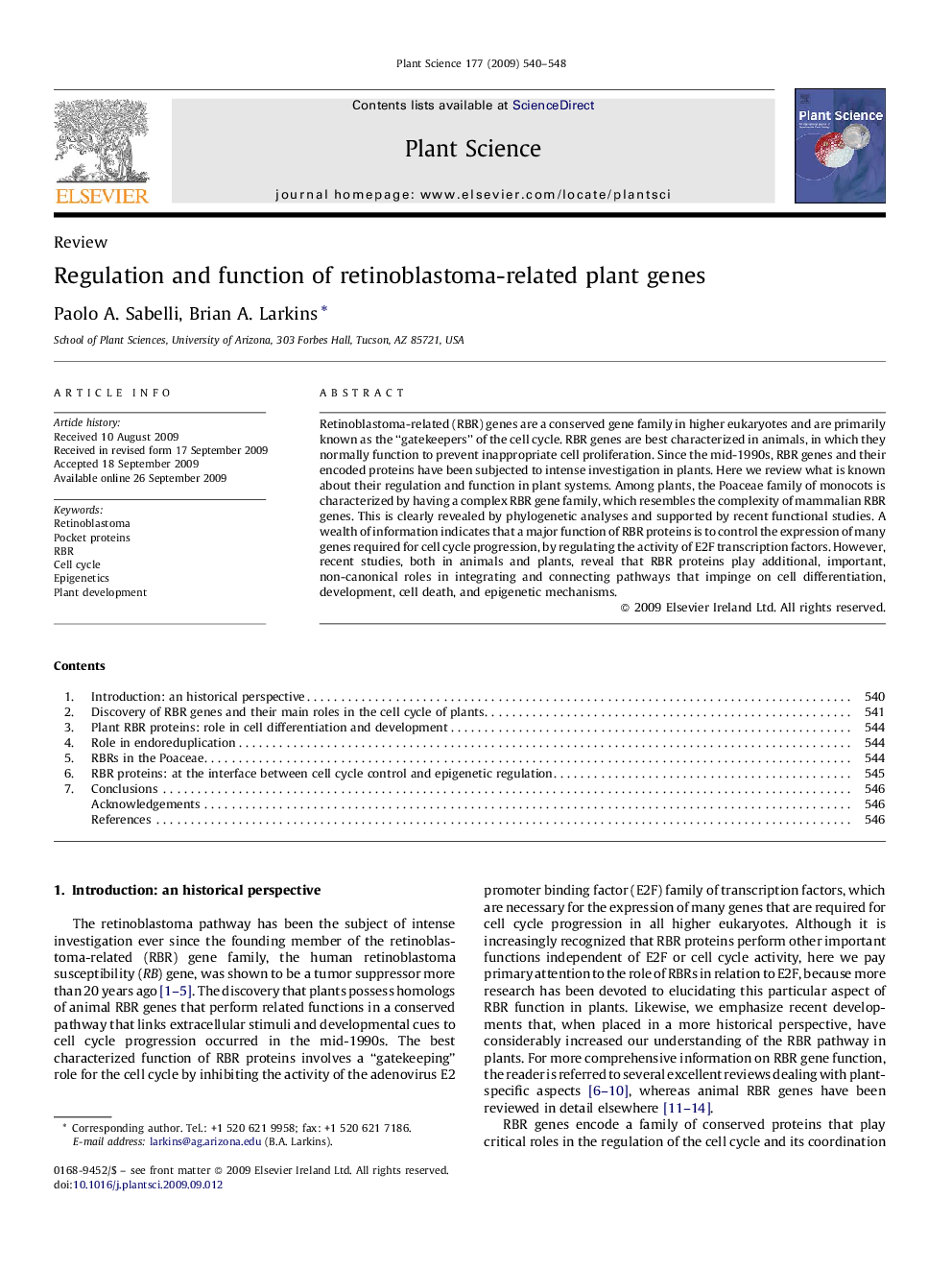| Article ID | Journal | Published Year | Pages | File Type |
|---|---|---|---|---|
| 2017866 | Plant Science | 2009 | 9 Pages |
Retinoblastoma-related (RBR) genes are a conserved gene family in higher eukaryotes and are primarily known as the “gatekeepers” of the cell cycle. RBR genes are best characterized in animals, in which they normally function to prevent inappropriate cell proliferation. Since the mid-1990s, RBR genes and their encoded proteins have been subjected to intense investigation in plants. Here we review what is known about their regulation and function in plant systems. Among plants, the Poaceae family of monocots is characterized by having a complex RBR gene family, which resembles the complexity of mammalian RBR genes. This is clearly revealed by phylogenetic analyses and supported by recent functional studies. A wealth of information indicates that a major function of RBR proteins is to control the expression of many genes required for cell cycle progression, by regulating the activity of E2F transcription factors. However, recent studies, both in animals and plants, reveal that RBR proteins play additional, important, non-canonical roles in integrating and connecting pathways that impinge on cell differentiation, development, cell death, and epigenetic mechanisms.
